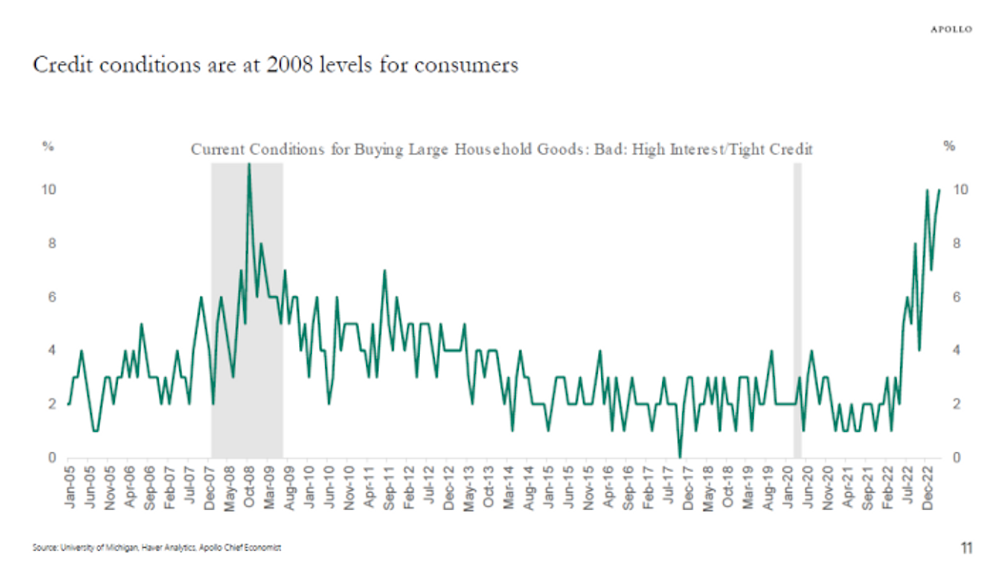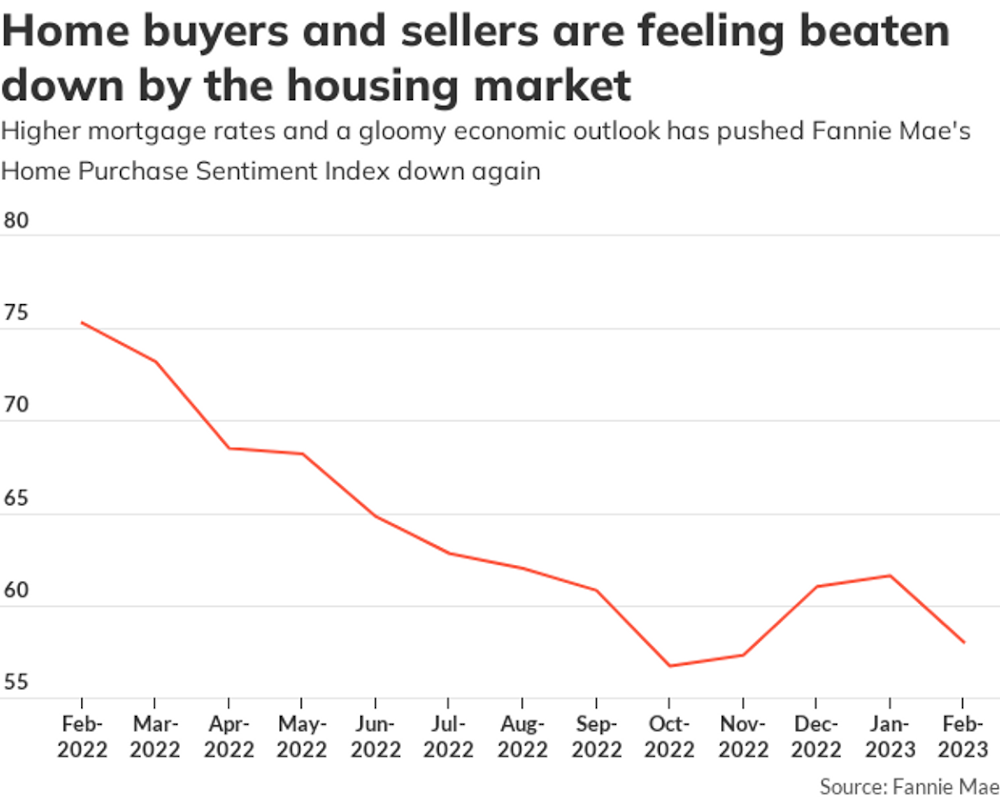
The Wall Street Journal
Proposals to Reshape Mortgage Firms Call for Retaining Public-Private Structure
A consensus appears to be growing among academics, investors and housing experts that the federal government should retain a role in the U.S. mortgage market over the long term and that the public-private partnership that has defined Fannie Mae and Freddie Mac should continue in some form.
Policy makers are still unsure how to transform or replace Fannie and Freddie, the two main providers of funding for home mortgages, which were taken over by the government last year amid huge losses on defaults. Still, there is broad support from a range of groups for the idea that private companies should succeed or replace Fannie and Freddie, but with enough government involvement to ensure that 30-year fixed mortgages remain available to most Americans.
The idea isn't without opposition, though. Longtime critics of Fannie and Freddie, including some Republicans, argue that the government's ties to the companies or any successors should be cut and their federal subsidies ended.
Although the Obama administration isn't due to release its proposals for reshaping the mortgage market until February, several influential groups have outlined proposals.
A homeowner meets last week in New York City with a mortgage counselor from a group that aims to help borrowers modify their loans.
The latest, to be released at a private meeting on Monday, is from a group assembled by the Center for American Progress, a think tank with close ties to the administration. It calls for explicit federal guarantees on certain mortgage-backed securities and robust federal regulation to ensure that mortgages offered to the public are safe. The group also wants to make sure that mortgages are available to low-income borrowers and others who may be spurned by private-sector lenders.
While the draft report didn't involve the participation of any administration officials, the liberal think tank has played key roles in shaping some of the administration's personnel and policy decisions. Its recommendations promise to be closely studied by Democratic policy makers.
A Treasury Department spokeswoman said the administration wouldn't comment on specific options until it puts forward its own recommendations.
Most proposals avoid the extremes of turning Fannie and Freddie into national agencies or leaving the market to the private sector, opting instead for a middle ground. While such an approach is easiest to achieve politically, it means the new structure would retain at least some of the public-private conflicts that bedeviled the old, such as tension between shareholders' desire for dividends and political pressure on the companies to support the housing market.
Restarting the government-run finance companies exactly "in their old forms would do nothing but ask for a repeat of recent history," Federal Reserve Governor Elizabeth Duke said in a speech last week, even as she said that recent history suggested that "some form of government backstop may be necessary" to ensure liquidity for home loans.
Try, Try Again
Proposals from the Center for American Progress for replacing
Fannie Mae and Freddie Mac with new entities.
Government-chartered firms, known as Chartered MBS Issuers, or CMIs, would finance home loans by selling securities explicitly guaranteed by the government, as opposed to Fannie and Freddie's implied guarantees.
CMIs would be privately owned, but regulators would limit their profitability. Fannie and Freddie had no explicit caps on profits.
Fees on mortgage securities would pay for insurance against defaults to lessen risks to the government. Fannie and Freddie currently pay dividends to the Treasury on preferred stock.
Regulators would set risk standards for all mortgage securities, including those issued by private entities. At present, regulators don't set standards for mortgage securities issued by Wall Street firms.
CMIs would have to support rental housing for low-income people.
CMIs could hold only limited amounts of mortgages and related securities. Fannie and Freddie have large holdings.
Source: Center for American Progress
The authors of the latest proposal want to move away from the current situation in which 90% of home mortgages are backed by government-related entities, including Fannie, Freddie and the Federal Housing Administration. They address the potential public-private conflicts by calling for much tougher regulation of the entire mortgage market.
"Federal support is not simply about providing liquidity" but should be also designed to ensure that credit flows to "underserved areas," such as inner cities, said Sarah Rosen Wartell, one of the report's authors and an executive vice president at the Center for American Progress.
Like other recent proposals, including one from the Mortgage Bankers Association and another by Credit Suisse analysts, the CAP proposal envisions the government providing an explicit guarantee on securities backed by certain types of mortgages. Without such a guarantee, the costs of a prepayable, 30-year fixed-rate mortgage might become too expensive for many homeowners.
To protect taxpayers, a fee paid on each issue of mortgage-backed securities would fund an insurance pool, and the government would step in to pay bondholders only if the companies and the insurance fund couldn't cover losses. A regulator would determine which mortgage products would be eligible for government backing and how large those mortgages could be.
That would replace the current system in which investors have long assumed that the government would stand behind Fannie and Freddie. While the U.S. government has propped up the companies, some foreign investors lost confidence in that implied guarantee and have reduced their holdings of the companies' debt.
But there are sharp differences among experts over how far the government should go in ensuring that mortgages are available to those who may not have access to purely private lenders. The CAP paper says that, in exchange for the government backstop, the companies' profits would have to be regulated, akin to a public utility. The companies would also be required to lend during periods of financial shock and to support affordable housing, including multifamily rental housing.
While the new companies shouldn't be allowed to hold large investment portfolios of mortgages, the report says, they should maintain smaller, heavily regulated ones to support their public purposes. The debt issued to fund those portfolios wouldn't carry any government backing.
Under their current structure, Fannie and Freddie are directed to target a big portion of their investment activities toward low- and moderate-income borrowers and communities. Republicans and other critics have argued that these mandates helped encourage Fannie and Freddie to loosen their standards, leading to massive taxpayer losses.
But the CAP paper places much of the blame for the current wave of mortgage defaults on the lending practices of Wall Street firms that during the housing boom sold mortgage securities not backed by any government-related entity. Irrational pricing in that market led Fannie and Freddie to make bad decisions as they lowered their standards in an effort to compete with Wall Street, the paper says.
To keep that from happening again, the white paper calls for heavy regulation not only of the new government-backed entities, but also of all private issuers of mortgage-backed securities.
That proposal isn't likely to sit well with industry groups, which say that that more regulation will only raise costs for borrowers. The industry has opposed efforts, including one in the financial regulatory overhaul bill that passed the House Friday, to require financial firms to retain a portion of the loans that they bundle and sell off as securities.
"In retrospect, some very sophisticated investors made poor investment decisions, but the government can't legislate or mandate investment decisions," said Tom Deutsch, deputy executive director of the American Securitization Forum.
The U.S. government took control of Fannie and its rival Freddie in September 2008 through a legal process known as conservatorship. To keep the companies afloat, the Treasury has agreed to purchase up to $200 billion of preferred stock in each company. By year's end, the companies will have taken a combined $112 billion in taxpayer money.
Proposals to Reshape Mortgage Firms Call for Retaining Public-Private Structure
A consensus appears to be growing among academics, investors and housing experts that the federal government should retain a role in the U.S. mortgage market over the long term and that the public-private partnership that has defined Fannie Mae and Freddie Mac should continue in some form.
Policy makers are still unsure how to transform or replace Fannie and Freddie, the two main providers of funding for home mortgages, which were taken over by the government last year amid huge losses on defaults. Still, there is broad support from a range of groups for the idea that private companies should succeed or replace Fannie and Freddie, but with enough government involvement to ensure that 30-year fixed mortgages remain available to most Americans.
The idea isn't without opposition, though. Longtime critics of Fannie and Freddie, including some Republicans, argue that the government's ties to the companies or any successors should be cut and their federal subsidies ended.
Although the Obama administration isn't due to release its proposals for reshaping the mortgage market until February, several influential groups have outlined proposals.
A homeowner meets last week in New York City with a mortgage counselor from a group that aims to help borrowers modify their loans.
The latest, to be released at a private meeting on Monday, is from a group assembled by the Center for American Progress, a think tank with close ties to the administration. It calls for explicit federal guarantees on certain mortgage-backed securities and robust federal regulation to ensure that mortgages offered to the public are safe. The group also wants to make sure that mortgages are available to low-income borrowers and others who may be spurned by private-sector lenders.
While the draft report didn't involve the participation of any administration officials, the liberal think tank has played key roles in shaping some of the administration's personnel and policy decisions. Its recommendations promise to be closely studied by Democratic policy makers.
A Treasury Department spokeswoman said the administration wouldn't comment on specific options until it puts forward its own recommendations.
Most proposals avoid the extremes of turning Fannie and Freddie into national agencies or leaving the market to the private sector, opting instead for a middle ground. While such an approach is easiest to achieve politically, it means the new structure would retain at least some of the public-private conflicts that bedeviled the old, such as tension between shareholders' desire for dividends and political pressure on the companies to support the housing market.
Restarting the government-run finance companies exactly "in their old forms would do nothing but ask for a repeat of recent history," Federal Reserve Governor Elizabeth Duke said in a speech last week, even as she said that recent history suggested that "some form of government backstop may be necessary" to ensure liquidity for home loans.
Try, Try Again
Proposals from the Center for American Progress for replacing
Fannie Mae and Freddie Mac with new entities.
Government-chartered firms, known as Chartered MBS Issuers, or CMIs, would finance home loans by selling securities explicitly guaranteed by the government, as opposed to Fannie and Freddie's implied guarantees.
CMIs would be privately owned, but regulators would limit their profitability. Fannie and Freddie had no explicit caps on profits.
Fees on mortgage securities would pay for insurance against defaults to lessen risks to the government. Fannie and Freddie currently pay dividends to the Treasury on preferred stock.
Regulators would set risk standards for all mortgage securities, including those issued by private entities. At present, regulators don't set standards for mortgage securities issued by Wall Street firms.
CMIs would have to support rental housing for low-income people.
CMIs could hold only limited amounts of mortgages and related securities. Fannie and Freddie have large holdings.
Source: Center for American Progress
The authors of the latest proposal want to move away from the current situation in which 90% of home mortgages are backed by government-related entities, including Fannie, Freddie and the Federal Housing Administration. They address the potential public-private conflicts by calling for much tougher regulation of the entire mortgage market.
"Federal support is not simply about providing liquidity" but should be also designed to ensure that credit flows to "underserved areas," such as inner cities, said Sarah Rosen Wartell, one of the report's authors and an executive vice president at the Center for American Progress.
Like other recent proposals, including one from the Mortgage Bankers Association and another by Credit Suisse analysts, the CAP proposal envisions the government providing an explicit guarantee on securities backed by certain types of mortgages. Without such a guarantee, the costs of a prepayable, 30-year fixed-rate mortgage might become too expensive for many homeowners.
To protect taxpayers, a fee paid on each issue of mortgage-backed securities would fund an insurance pool, and the government would step in to pay bondholders only if the companies and the insurance fund couldn't cover losses. A regulator would determine which mortgage products would be eligible for government backing and how large those mortgages could be.
That would replace the current system in which investors have long assumed that the government would stand behind Fannie and Freddie. While the U.S. government has propped up the companies, some foreign investors lost confidence in that implied guarantee and have reduced their holdings of the companies' debt.
But there are sharp differences among experts over how far the government should go in ensuring that mortgages are available to those who may not have access to purely private lenders. The CAP paper says that, in exchange for the government backstop, the companies' profits would have to be regulated, akin to a public utility. The companies would also be required to lend during periods of financial shock and to support affordable housing, including multifamily rental housing.
While the new companies shouldn't be allowed to hold large investment portfolios of mortgages, the report says, they should maintain smaller, heavily regulated ones to support their public purposes. The debt issued to fund those portfolios wouldn't carry any government backing.
Under their current structure, Fannie and Freddie are directed to target a big portion of their investment activities toward low- and moderate-income borrowers and communities. Republicans and other critics have argued that these mandates helped encourage Fannie and Freddie to loosen their standards, leading to massive taxpayer losses.
But the CAP paper places much of the blame for the current wave of mortgage defaults on the lending practices of Wall Street firms that during the housing boom sold mortgage securities not backed by any government-related entity. Irrational pricing in that market led Fannie and Freddie to make bad decisions as they lowered their standards in an effort to compete with Wall Street, the paper says.
To keep that from happening again, the white paper calls for heavy regulation not only of the new government-backed entities, but also of all private issuers of mortgage-backed securities.
That proposal isn't likely to sit well with industry groups, which say that that more regulation will only raise costs for borrowers. The industry has opposed efforts, including one in the financial regulatory overhaul bill that passed the House Friday, to require financial firms to retain a portion of the loans that they bundle and sell off as securities.
"In retrospect, some very sophisticated investors made poor investment decisions, but the government can't legislate or mandate investment decisions," said Tom Deutsch, deputy executive director of the American Securitization Forum.
The U.S. government took control of Fannie and its rival Freddie in September 2008 through a legal process known as conservatorship. To keep the companies afloat, the Treasury has agreed to purchase up to $200 billion of preferred stock in each company. By year's end, the companies will have taken a combined $112 billion in taxpayer money.



















No hay comentarios:
Publicar un comentario